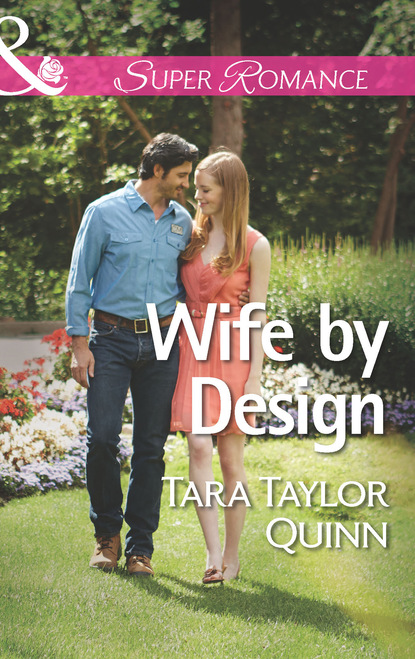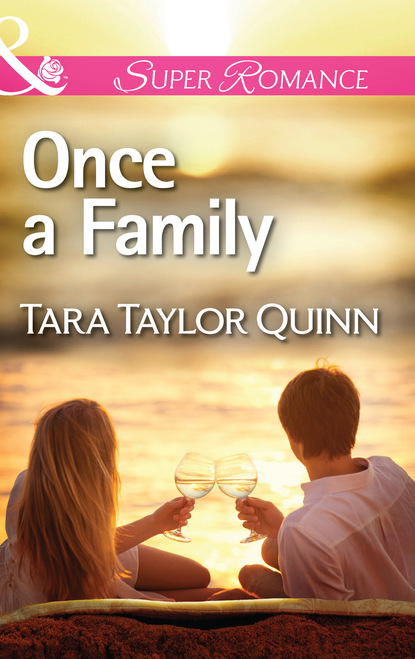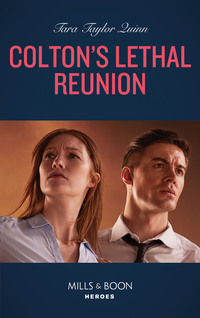
Полная версия
The Promise He Made Her

A man of his word
Dr. Bloom Freelander thought it was safe to breathe again when Detective Sam Larson put her abusive ex away for good. She’s been moving on, running a private practice and providing psychiatry services to The Lemonade Stand women’s shelter. But now that her ex is a free man, she’s in danger once again.
Forced into protective custody, Bloom can’t help but fall for her protector. But she has every reason to doubt the handsome detective’s word. Sam broke his promise to her once. Who says he won’t break it again—along with her heart this time?
He was there for a reason...
“Sam—” she used his first name, though he’d never told her to “—what’s going on? Can I help?”
When he shook his head, her heart sank. Please, God, don’t let this man have done something bad enough to put him in jail. A world without him in it. Santa Raquel without him keeping it safe.
The idea left her bereft.
His expression cleared. “Yes, you can help.” He seemed to have fought some internal battle and...won?
“Okay.” She smiled. Couldn’t seem to stop smiling at him. Wanted to put her hand on his knee where it rested close to hers. Or on the hand he had resting on it. “What can I do?”
“I need you to do me a favor.”
“Sure. Fine. What?” This was Sam Larson. He’d saved her life. She owed him far more than she’d ever be able to repay.
“I need you to pack up whatever keepsakes and possessions you most value, along with clothes and personal items, and be ready for me to pick you up late tomorrow afternoon.”
Dear Reader,
I’m a bit envious of you. You have this story ahead of you. I’ve already finished it. For me it’s one of those books that leaves you feeling bereft at the end because it’s over. I can’t really even tell you why. I love Sam. He’s not perfect. Far from it. But he’s completely honest. With himself. And with others. He stands by what he says. Does what he says he’s going to do.
And then...he finds out that he’s not in control of the whole world...that sometimes he can’t do as he says because it’s out of his control. He does not take this news well.
And Bloom, she’s an incarnation of so many things. She’s a genius, like the one I raised. But beyond what I was personally bringing to the story, Bloom...bloomed...into so much more than these little details that I knew about her. She found an inner strength that I didn’t know existed, but that I’ve taken upon myself. Mostly I love her because she found a way to walk through the fire with an open heart.
I hope you enjoy your time in Santa Raquel, and that you come back to visit often. We’re giving you many “vacation” opportunities. But rest assured, each “package” takes you, in some way, through The Lemonade Stand, Where Secrets are Safe. Welcome!
I love to hear from readers! You can find me on Facebook at Facebook.com/tarataylorquinn and on Twitter, @tarataylorquinn. Or join my open Friendship board on Pinterest! Pinterest.com/tarataylorquinn/friendship.
All the best,
Tara
www.TaraTaylorQuinn.com
The Promise He Made Her
Tara Taylor Quinn

www.millsandboon.co.uk
An author of more than seventy novels, TARA TAYLOR QUINN is a USA TODAY bestselling author with more than seven million copies sold. She is known for delivering emotional and psychologically astute novels of suspense and romance. Tara is a past president of Romance Writers of America. She has won a Readers’ Choice Award and is a five-time finalist for an RWA RITA® Award, a finalist for a Reviewer’s Choice Award and a Booksellers’ Best Award. She has also appeared on TV across the country, including CBS Sunday Morning. She supports the National Domestic Violence Hotline. If you or someone you know might be a victim of domestic violence in the United States, please contact 1-800-799-7233.
MILLS & BOON
Before you start reading, why not sign up?
Thank you for downloading this Mills & Boon book. If you want to hear about exclusive discounts, special offers and competitions, sign up to our email newsletter today!
SIGN ME UP!
Or simply visit
signup.millsandboon.co.uk
Mills & Boon emails are completely free to receive and you can unsubscribe at any time via the link in any email we send you.
For Rachel: You chose a difficult path to help many and keep us safe. May you also always be able to walk through the fire with your heart open. All my love, forever. Ma
Contents
COVER
BACK COVER TEXT
INTRODUCTION
Dear Reader
TITLE PAGE
ABOUT THE AUTHOR
DEDICATION
CHAPTER ONE
CHAPTER TWO
CHAPTER THREE
CHAPTER FOUR
CHAPTER FIVE
CHAPTER SIX
CHAPTER SEVEN
CHAPTER EIGHT
CHAPTER NINE
CHAPTER TEN
CHAPTER ELEVEN
CHAPTER TWELVE
CHAPTER THIRTEEN
CHAPTER FOURTEEN
CHAPTER FIFTEEN
CHAPTER SIXTEEN
CHAPTER SEVENTEEN
CHAPTER EIGHTEEN
CHAPTER NINETEEN
CHAPTER TWENTY
CHAPTER TWENTY-ONE
CHAPTER TWENTY-TWO
CHAPTER TWENTY-THREE
CHAPTER TWENTY-FOUR
CHAPTER TWENTY-FIVE
CHAPTER TWENTY-SIX
CHAPTER TWENTY-SEVEN
CHAPTER TWENTY-EIGHT
CHAPTER TWENTY-NINE
CHAPTER THIRTY
CHAPTER THIRTY-ONE
EXTRACT
COPYRIGHT
CHAPTER ONE
PHYSICAL BRUISES HEAL. It’s the mental ones that can kill you. Bloom shook her head and hit the delete key. Looked for a more genteel way to get her point across. She didn’t want to lose her audience during the first minute of the two-hour-long psychology symposium. They’d given her a room with seating for three hundred, which could feel cavernous if she failed to entertain.
Back in her old life, her teaching life, she’d have filled the screen with visual aids, provided a handout—and probably pens, too. She’d have sent around a bowl filled with individually wrapped peppermints. All actions designed to increase memory retention in lecture situations, and she’d have been content to get 5 percent retention after seven days.
But those were the old days. Her associate college professor days. Funny how so much could change in just three years.
Physical bruises heal. It’s the mental ones that can kill you. Her second try ended up exactly the same as the first.
And if she started her keynote address at the psychiatric conference that way, people might not physically exit in droves, but she might lose her credibility.
One in four of the audience members—the current statistic for the number of the victims of domestic violence in the United States—might even take offense. Get angry.
How could she belittle the bruises that took so many lives? How could she say that “bruises heal,” dismissing the fact that intimate partners lifted fists to those who loved them?
She had two hours to impress upon her peers the very real disease that ate away at more of the population than any other disease. Domestic violence.
Medical personnel had been made more aware of intimate partner violence in recent years. After all, some professional sports leagues had been forced to shine light on the problem as a way of warding off the negative press that resulted from some of their stars being abusers.
But the fact that every minute twenty-four people were victims of intimate partner abuse in the United States was not just a problem for police and hospitals, doctors and nurses. Her profession—psychiatrists, psychologists, counselors—needed to step up to the plate.
Because bruises, broken bones, even cracked skulls healed over time. But without awareness, without help, without a “movement” to tend to the mental bruises left by domestic violence, not enough of the victims of that violence were going to heal...
The soapbox is not going to work with these people.
Bloom’s self-talk was trying to help. She knew that.
But...unhealed mental wounds often drove victims to the other side—they became abusers.
Preaching, teaching, prophesying or statisticizing wasn’t going to reach her peers.
She deleted again.
Sitting behind her mahogany desk, Bloom looked over the top of her laptop screen to survey her office, as though the words she needed were there. The couch and two recliners that faced each other with her favorite old claw-footed chair—an inheritance from the maternal grandmother she’d adored—offered...nothing. There was the coffee table with a floral tissue box holder in the middle of it. Wall hangings, all carefully chosen, in shades of muted reds, oranges, yellows, a splash of purple. Some hearts quilted together. Some quotations in the midst of abstract art.
Clearly a woman’s office. She made no apology for that. She was a woman.
Her patients were predominantly women.
A lot of whom were living healthy, productive lives.
But there were so many more out there. And she was booked to the hilt. Beyond the hilt, really, not that she minded the evening hours she put in three nights a week in addition to fully booked days.
Dr. Bloom Freelander, Psy.D, had a thriving private practice.
And it wasn’t enough.
She couldn’t even come close to serving the needs of all of those calling her office for help.
Nine o’clock on a Wednesday night. Her last patient had been gone almost an hour. Susan, her receptionist, soon after that. She had a 7:00 in the morning—Latoya Markham, who had to be at work by 8:00 a.m. And here she sat, needing to write the speech that she’d be giving at the University of California in just two days.
Physical bruises heal. It’s the mental ones that can kill you.
No!
The truth was...true. Physical bruises did heal. In some fashion. They’d fade and disappear. Broken bones reset. Some attacks resulted in death, too. It was the most unfortunate fact of all. One that she was trying desperately to avoid as often as humanly possible. The way to prevent domestic violence deaths was to heal the person. As well as the bruises.
She typed.
The way to prevent domestic violence deaths is to heal the person. Not just the bruises.
She read what she’d typed. Nodded. Yes. There.
She still had two hours left to fill.
She read her words again. One sentence. Her fingers lifted to the keys. Began to move. And Bloom quit fighting them.
* * *
WTF.
Detective Samuel Larson, thirty-seven-year-old semistar of the Santa Raquel Police Department, leaned back in the old squeaky desk chair he’d inherited, along with the scarred desk, when he’d been awarded his detective’s shield.
He didn’t give a rat’s ass about the desk. Never had. He stared at the emailed report he’d just opened.
Two years? The asshole was out in two years?
How was he going to... “Damn.”
“Something wrong?” Brand-new detective Chantel Harris, who’d recently transferred from a beat cop to internet crime investigation, happened to be walking by Sam’s desk as that last expletive slipped out.
Sam knew Chantel. Not from any work they’d done together on the job, but because they were both members of the Santa Raquel High Risk Team—an organization of professionals in all fields who came into contact with victims of domestic violence. From nurses to school counselors, cops, doctors, lawyers, the team had formed an intricate communication system geared solely to prevent domestic violence deaths.
“Yeah, something’s wrong,” he said, running a hand through blond hair that was too long by department standards. No one seemed to care. Least of all him. “One of our High Risk cases just threw up on us.”
In silk pants and a jacket that looked like it had cost a year of his car payments, the no-nonsense, no makeup, blond-hair-tied-back cop sat down hard in the varnishless wooden chair beside his desk.
“Which one?” Her lips were white with tension.
“This one was before your time,” he quickly assured her.
“But not before yours.”
“Right.” He looked at his screen again, seething angry energy. Rocking back and forth in the swivel chair that had seen better days, leaning on one elbow as he chewed the side of his finger.
Chantel glanced at the screen. “Arrested three years ago, sentenced to life in prison a year later and now released on a technicality,” she read the portion he’d scrolled to.
“The lawyer who prosecuted him was Trevor Banyon.” He chewed harder.
Chantel’s drawn out curse was only slightly less harsh than his mental one. “How many are they up to now? Twenty-four? I can’t believe that many cases have been overturned. A top prosecutor with an illegal gun trade on the side.” She shook her head. “The guy should be shot.”
With one of his own weapons, Sam agreed silently.
“I thought all of his cases were drug related.” Chantel leaned over and, taking charge of his mouse, scrolled some more. “What was he doing on one of our cases?”
“The perp was a professor of psychology at U of C. The victim, his wife, was an associate professor he’d mentored.”
“The authority figure.” Chantel’s tone dripped disrespect. He knew it because it was a sentiment he shared.
Answering to a boss was one thing—having someone assume that they knew what was best for you better than you did, or thought that they had the right to force their will onto another—the idea pissed him off. Royally.
“So why were we on it?” Chantel, apparently finding nothing pertinent in the brief report, sat back. “U of C is out of our jurisdiction.”
“The couple owned a home here on the beach and commuted.” An hour and a half four days a week. He remembered the details. Every one of them.
“Still, doesn’t explain Banyon’s involvement.”
“The professor also had a private practice. He was a licensed psychiatrist. He’d been slowly drugging his wife.”
“He was killing her?”
“Nothing that kind.” Sam shook his head, feeling his lunch threaten to come back up on him. “He’d made up his own little cocktail. Just to dumb her down enough that she wouldn’t surpass him.”
“He drugged her to keep her in his control?”
“She’s genius-level intelligent,” Sam said, remembering the woman he’d spent two years trying to forget. Because forgetting was the right thing to do.
She’d been so vulnerable when he’d known her. Nothing like the person she’d been born to be. The person he hoped she’d become after she’d gotten her life back. “He was afraid she was going to take his job.” Chantel cut right to the chase. “Or surpass him in his field.”
“Yeah.”
“Did he hit her, too?”
“Hard enough to break her jaw.” And the crooked smile he’d left behind would be her constant reminder of what the man she’d adored, idolized and trusted had done to her.
“He’s due out next Monday. That’s four days,” Chantel said, frowning.
“I know.”
“When are you going to tell her?”
It was Thursday morning. He was thinking about...maybe...Sunday night. Give her as much peace of mind as he could.
Give himself some way to figure out how to get the asshole back behind bars before he’d had a chance to take a step out.
“With his conviction overturned there won’t even be a probation period.”
He knew that.
“What about a restraining order?” Chantel asked the question even as she shook her head.
“Not until he approaches her again,” he said what they both already knew. When a case went away, so did all of the painfully collected evidence. At least in theory.
“She needs time to make arrangements.”
She had a point. Maybe Sunday night was leaving it a little late. Still, he needed time to make a plan.
“Is she still local?”
“Yeah. She’s in private practice now. Has an office in that professional plaza across the street from the hospital.” Still living in the beach house she’d bought with the bastard. That was one of the first things they were going to have to fix.
They. As though she was going to want to have anything to do with him when she found out that he hadn’t been able to keep his promise to her that once she testified the man who’d hurt her so cruelly would spend the rest of his life behind bars. That if she testified he, Detective Sam Larson, would guarantee her safety.
Not that Banyon’s sins were on him. But the fact that the asshole professor’s wife had testified against him when everything in her had told her not to do so—that was on Sam. He’d ridden her hard.
He’d needed her testimony to make his case.
To keep her safe.
Well, he’d sure as hell screwed that one up.
CHAPTER TWO
“I HAD A degree in psychology from Stanford University when I was seventeen. My master’s by the time I was nineteen. And my doctorate at twenty-one.”
Bloom spoke with authority. Because when it came to her own life, she was the expert. And that was okay.
“I’m smart. Aware. And a talented right brain, as well.” She could talk about her paintings. The artwork on her office walls. She didn’t. They weren’t pertinent and she had a job to do. A task to get through.
“Unlike many geniuses, I was also gifted with a good bit of common sense. When I was little my mother could get me through most unwanted tasks by telling me that Baby—a rubber doll from which I was inseparable—had to go through them, too. Baby had to get a shot, so I was fine getting one. If it was nap time, Baby had to take a nap, and so I would, too...”
Audience members were looking at her, nodding. A few of them even bore little grins.
“She tells the story that when I was eighteen months old, I announced from the bathtub one morning that I wanted chocolate for breakfast. At which point she informed me that we didn’t eat chocolate for breakfast. I frowned for a moment, picked up Baby—who, of course, was in the bath with me—and announced that Baby wanted chocolate for breakfast.”
Yep. Three hundred faces were upturned in her direction. Bloom just kept on doing what she was doing. Because she’d told herself to do so.
“My mother told me to tell Baby that we didn’t eat chocolate for breakfast. She was one step ahead of me the whole way. Until I held my rubber doll up to her nose and pointed out that ‘Baby doesn’t have any ears.’”
The entire room erupted in laughter. Bloom started to sweat. It was those bright lights.
She was successful. Capable. And in control.
But she looked to the right, anyway. To the seat at the very end of the front row. She’d arrived early specifically to put a reserved sign on that chair. Lila McDaniel didn’t have a lot of time. But when Bloom had called the director of The Lemonade Stand—the unique women’s shelter where she’d lived for the weeks it had taken her to come back to herself after it had been discovered that her husband had been drugging her for months—to ask for support for the Friday morning keynote session, for backup statistics and a small informational speech to her colleagues about shelter work, Lila had immediately appointed herself to attend.
As the laughter died down around them, Lila nodded. She wasn’t smiling. Yet there was no doubting the warmth in her expression. And it empowered Bloom.
“Mom recovered before I was out of the tub,” she continued. The room, when she paused to take a breath, was completely silent. She was speaking to interested bodies. Not walls...
“She explained to me that if I gave Baby chocolate for breakfast I would make her sick. And I told her that she couldn’t give me chocolate for breakfast because she’d feel bad if she made me sick.”
A collective sigh moved around the room. There were men there. Many of them. All with psychiatric doctoral credentials.
She glanced at Lila again. The woman just looked at her without even so much as another nod of encouragement. To anyone in the room, Lila was just another attendee. To Bloom, she was fresh air in her lungs.
“I can stand up here and fill the next two hours with my mother’s tales of my greatness. I can talk about the long-distance call I made when I was five to reassure my grandmother, whose purse had just been stolen, that she would be just fine because I loved her and so did other people, so she hadn’t lost what mattered. I can entertain you all day long. To a room full of psychiatrists, my childhood is fascinating stuff. But entertaining you is not my purpose here today.” Heads tilted, a few people frowned, all eyes were still on her.
It could be, a small voice inside her said. She could wing this. Be a huge success. But this invitation—to keynote for her peers on whatever topic she chose—gave her a chance to fulfill a higher purpose.
And to grow as a person, too. To take back another piece of herself that the bastard had tried to steal from her.
“I’m a smart woman. A wise woman. And a victim of domestic violence.”
Many of them knew. Bloom’s husband had been an esteemed colleague to some of them. Even if just through professional organization memberships.
Knowing and wanting to hear were two different things.
She forced herself to look out at them. To continue to connect. All but a few heads were turned away or bowed. People were suddenly interested in loose threads in their clothing. Their shoes. The carpet. A clock on the wall.
“I am also a survivor,” she said, her voice imbued with emotion. “I am strong and capable, successful and healthy. Because I was able to get out. To get help. Because I had a counselor who was educated to my specific needs, who not only knew the kinds of things I was experiencing, but who knew what would most likely come as well, who was able to prepare me to handle those things, sometimes even on my own, when they did come.
“It’s been two years since my recovery, ladies and gentlemen. And I stand before you today, a fully alive, contributing woman who truly enjoys life. My life. I got lucky. I landed in a perfect place—The Lemonade Stand—a place you all will hear about before this session is through.
“But first, my challenge to each and every one of you is to listen. To hear what I have to say. And to look inside yourselves. To ask yourselves the tough questions. And for those of you who receive positive answers, to help. Even if you are in the field you need to be in, you can still help raise awareness of the need for counselors who specialize in intimate partner violence. And for those who don’t have special training in that particular field, you can help by being willing to refer their own clients to those who do...”
Bloom was on a roll. Confident. She gave statistics. Mixed in with difficult, but potent personal anecdotes. She grabbed her scholarly audience by the throat. Figuratively.
Much like she’d once been grabbed physically.
She took them down her road with her. As a victim and also as a psychiatrist with a successful practice.
Sparing them nothing, she made them feel her pain.
And brought them to her happy ending.
Thanks to a counselor who was a specialist in treating intimate partner violence, she was no longer a victim.












